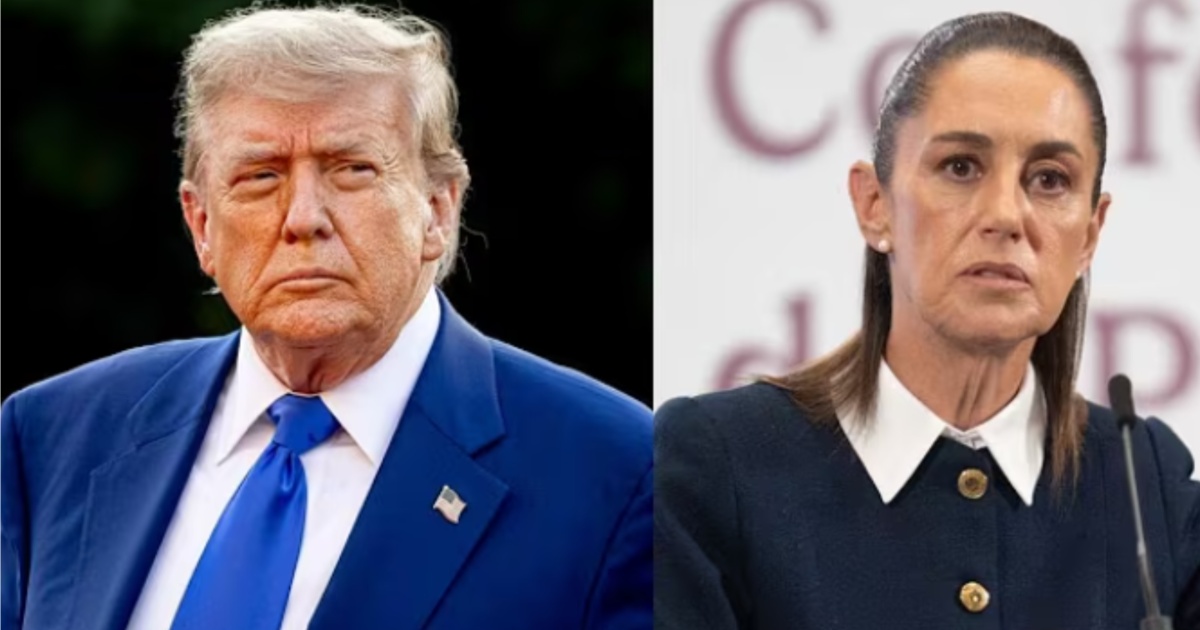President Donald Trump has pulled back from imposing additional tariffs on Mexican imports, announcing a 90-day extension of the current trade terms following a phone conversation with Mexico’s president, Claudia Sheinbaum.
The decision came just hours before the new tariffs were due to take effect on Friday. In a lengthy message posted to Truth Social, Trump described the discussion with Sheinbaum as productive, noting that both leaders are “getting to know and understand each other” better.
Under the extension, the United States will maintain its existing tariff levels: 25% on fentanyl-related imports, 25% on cars, and 50% on steel, aluminum, and copper. Trump said Mexico has also agreed to eliminate several non-tariff trade barriers, though he did not go into specifics.
The move means the current framework will remain in place—goods from Mexico that meet the terms of the USMCA trade agreement will continue to be exempt from these tariffs, while non-compliant goods will still be taxed at the higher rates.
Trump said the two governments plan to continue negotiations during the 90-day window, aiming to formalize a broader deal. “We will be talking to Mexico over the next 90 days with the goal of signing a Trade Deal somewhere within the 90-day period of time, or longer,” he wrote.
Mexico has become increasingly vital to U.S. supply chains. Since 2023, the country has ranked as America’s largest trading partner, surpassing China in the wake of ongoing U.S. tariffs on Chinese goods. Everything from automobiles to electronics and textiles now flows north from Mexico in large quantities.
BREAKING: President Trump says the US and Mexico have agreed to extend their current tariff arrangement for another 90 days. pic.twitter.com/hBka0vHfy8
— The Kobeissi Letter (@KobeissiLetter) July 31, 2025
Trump’s announcement came as a relief to many U.S. businesses that had braced for disruptions. Manufacturing sectors, in particular, rely heavily on materials and components from Mexico. The auto industry alone could have faced significant cost increases had the planned tariffs taken effect.
The issue of trade is closely tied to broader concerns about border security. Trump said Thursday’s discussion also covered cooperation on drug trafficking and immigration enforcement. “There will be continued cooperation on the Border as it relates to all aspects of Security, including Drugs, Drug Distribution, and Illegal Immigration into the United States,” he noted.
Entre todas las naciones, México tiene el mejor acuerdo comercial posible con Estados Unidos: presidenta Claudia Sheinbaum. Indica que su llamada de 40 minutos con Trump fue positiva pues se salvaguarda el TMEC y se posterga 90 días cualquier arancel adicional. pic.twitter.com/irRoFktQid
— JorgeArmandoRocha (@JorgeArmandoR_) July 31, 2025
The president named several top administration officials who were present for the call, including Vice President JD Vance, Secretary of State Marco Rubio, Treasury Secretary Scott Bessent, and U.S. Trade Representative Jamieson Greer.
Mexico, for its part, has so far avoided retaliatory actions in response to Trump’s tariff threats. However, Sheinbaum has previously stated her government would consider levying counter-tariffs if the U.S. escalated trade barriers.
While the 90-day extension prevents immediate economic fallout, it’s only a temporary measure. The real test will come in the weeks ahead, as negotiators attempt to craft a more permanent framework. Whether that happens in time or at all remains to be seen.









